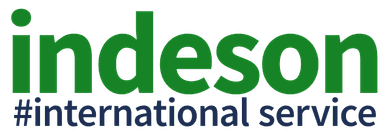Management InformationSystem Services
Always keep an accurate picture of your operations with our comprehensive MIS Solutions
Strategic Management Information Systems (MIS) represent critical infrastructure for evidence-based decision-making, operational optimization, and institutional performance enhancement in complex educational and development contexts. Our comprehensive MIS solutions provide educational institutions, government agencies, and development organizations with sophisticated digital platforms that integrate data collection, analysis, and reporting capabilities essential for effective organizational management and continuous improvement processes.
Contemporary MIS architectures serve as the technological foundation for data-driven governance, enabling managers and decision-makers to access real-time operational intelligence, monitor performance indicators, evaluate program effectiveness, and implement strategic interventions based on comprehensive analytical insights. Our MIS development approach integrates cutting-edge technologies with user-centered design principles, ensuring that systems provide intuitive interfaces while maintaining robust analytical capabilities and scalable infrastructure.
Through systematic application of international best practices in system design, data architecture, and user experience optimization, we deliver MIS solutions that transform organizational capabilities for monitoring, evaluation, and strategic planning. Our systems support complex multi-stakeholder environments, accommodate diverse data sources, and provide flexible reporting mechanisms that enable evidence-based management across institutional hierarchies and functional domains.
Strategic implementation of comprehensive Management Information Systems provides fundamental capabilities for organizational excellence, accountability, and sustainable performance improvement. In the context of educational institutions and development programs, sophisticated MIS platforms serve multiple critical functions that directly impact institutional effectiveness and development outcomes:
Evidence-Based Decision-Making and Strategic Intelligence
Advanced MIS platforms provide managers and institutional leaders with accurate, timely, and comprehensive information that enables informed decision-making processes across operational, tactical, and strategic levels. Through integration of multiple data sources, automated analysis capabilities, and customizable reporting mechanisms, MIS systems transform raw operational data into actionable intelligence that supports evidence-based management and continuous organizational improvement.
Operational Performance Enhancement and Efficiency Optimization
Sophisticated MIS solutions identify operational inefficiencies, performance bottlenecks, and improvement opportunities through comprehensive data analysis and performance monitoring capabilities. Real-time operational intelligence enables managers to implement targeted interventions, optimize resource allocation, and enhance organizational productivity while maintaining quality standards and service delivery effectiveness.
Financial Management and Resource Optimization
Integrated financial management modules within MIS platforms provide comprehensive budgeting, accounting, and financial reporting capabilities that optimize resource utilization and ensure financial sustainability. Advanced financial analytics enable predictive modeling, cost-benefit analysis, and strategic financial planning that supports institutional growth while maintaining fiscal responsibility and accountability.
Human Resource Management and Capacity Development
Comprehensive staff management capabilities within MIS platforms provide tools for attendance monitoring, performance tracking, professional development planning, and payroll management that enhance human resource effectiveness. Integrated capacity building modules support staff development planning, training coordination, and competency assessment processes that contribute to organizational capacity enhancement and employee satisfaction.
Real-Time Monitoring and Performance Control
Advanced MIS platforms provide real-time operational monitoring capabilities that enable continuous performance tracking, early warning systems, and proactive management interventions. Automated alerts, dashboard visualizations, and performance indicators support responsive management approaches that maintain organizational effectiveness while preventing operational disruptions or performance degradation.
Business Process Automation and Workflow Optimization
Sophisticated MIS solutions automate routine administrative processes, streamline workflow management, and eliminate manual bottlenecks that reduce organizational efficiency. Automated processes enhance accuracy, reduce processing time, and enable staff to focus on value-added activities while ensuring consistent application of organizational policies and procedures.
The absence of comprehensive, well-designed Management Information Systems creates systemic challenges that undermine organizational effectiveness, compromise decision-making quality, and limit institutional development potential:
Decision-Making Based on Incomplete or Inaccurate Information
Without reliable MIS platforms, managers make decisions based on partial, outdated, or inaccurate information, resulting in suboptimal resource allocation, ineffective interventions, and missed opportunities for organizational improvement. This creates cycles of reactive management that prevent strategic planning and compromise long-term institutional development.
Operational Inefficiencies and Resource Waste
The absence of comprehensive operational monitoring leads to unidentified inefficiencies, duplicated efforts, and suboptimal resource utilization that increase operational costs while reducing service delivery quality. Manual processes create bottlenecks, errors, and delays that compromise institutional effectiveness and stakeholder satisfaction.
Limited Financial Control and Accountability
Without integrated financial management systems, institutions struggle with budget tracking, expenditure control, and financial reporting, creating risks of overspending, fund misallocation, and accountability deficits. This compromises donor confidence, regulatory compliance, and long-term financial sustainability while limiting opportunities for resource mobilization.
Inadequate Performance Monitoring and Quality Assurance
The absence of systematic performance monitoring prevents institutions from identifying service delivery problems, measuring program effectiveness, or implementing quality improvement measures. This results in declining service quality, reduced stakeholder satisfaction, and inability to demonstrate impact to development partners and oversight bodies.
Manual Process Dependencies and Administrative Burdens
Reliance on manual administrative processes creates excessive administrative burdens, increases error rates, and limits scalability of institutional operations. Staff time devoted to routine administrative tasks reduces capacity for strategic activities while creating vulnerabilities to operational disruptions and inconsistent service delivery.
Limited Organizational Learning and Continuous Improvement
Without comprehensive data collection and analysis capabilities, institutions cannot identify lessons learned, track improvement trends, or implement systematic organizational development initiatives. This prevents institutional learning, limits adaptive capacity, and reduces competitiveness within dynamic operational environments.
Management Information Systems (MIS) and Education Management Systems (EMS) represent complementary but distinct technological approaches to institutional management and operational optimization. MIS platforms provide comprehensive organizational management capabilities that support decision-making, financial management, human resources, and operational control across diverse institutional contexts, while EMS solutions focus specifically on educational operations including curriculum management, student information systems, and academic performance tracking.
Strategic system selection requires careful analysis of institutional needs, operational priorities, and integration requirements to ensure optimal technology investment and maximum operational benefit. Organizations operating in educational contexts often benefit from integrated approaches that combine MIS and EMS capabilities, providing comprehensive management support while maintaining specialized functionality for educational program delivery and student services.
Our system development approach recognizes the interconnected nature of management and educational operations, providing integration strategies that enable seamless data flow between MIS and EMS platforms while maintaining system efficiency and user experience quality. This integrated approach ensures that institutional leaders have access to comprehensive operational intelligence while specialized users maintain access to domain-specific functionality required for effective service delivery.
Comprehensive Data Management and Analytics Solutions
We design and implement sophisticated data management architectures that collect, store, and analyze large volumes of operational data from diverse sources. Our data management services include data warehousing, ETL processes, data quality assurance, and analytics platform development that provide reliable foundations for evidence-based decision-making and strategic planning processes.
Business Intelligence and Decision Support Systems
Our business intelligence services create advanced analytics and visualization platforms that transform operational data into actionable insights. We develop customized dashboards, automated reporting systems, and interactive analytics tools that enable managers to identify trends, monitor performance, and make informed decisions based on comprehensive data analysis and predictive modeling.
Cloud-Based Infrastructure and Scalable Solutions
We provide cloud-based MIS solutions that leverage scalable infrastructure, ensure data security, and enable flexible access across geographic and organizational boundaries. Our cloud services include system migration, hybrid cloud architectures, and disaster recovery solutions that ensure system reliability while optimizing cost-effectiveness and operational flexibility.
Systems Integration and Workflow Automation
Our integration services connect diverse organizational systems, automate business processes, and streamline operational workflows to enhance efficiency and reduce administrative burdens. We provide API development, system connectivity solutions, and process automation that eliminate manual bottlenecks while ensuring data consistency and operational reliability.
Cybersecurity and Data Protection Services
We implement comprehensive cybersecurity frameworks that protect organizational data, ensure system integrity, and maintain regulatory compliance. Our security services include vulnerability assessments, threat monitoring, access control systems, and data encryption that provide robust protection while enabling authorized access and operational functionality.
Training and Capacity Building Support
Our capacity building services provide comprehensive training, documentation, and ongoing support that enable organizations to maximize MIS value and maintain system effectiveness. We deliver user training, administrator certification, system documentation, and change management support that ensures successful system adoption and sustained organizational benefit.
Ongoing Maintenance and System Evolution
We provide continuous system maintenance, performance optimization, and technology upgrades that ensure MIS platforms remain current, secure, and effective. Our maintenance services include regular system updates, performance monitoring, troubleshooting support, and evolutionary enhancement that maintains system relevance while incorporating emerging technologies and organizational requirements.

